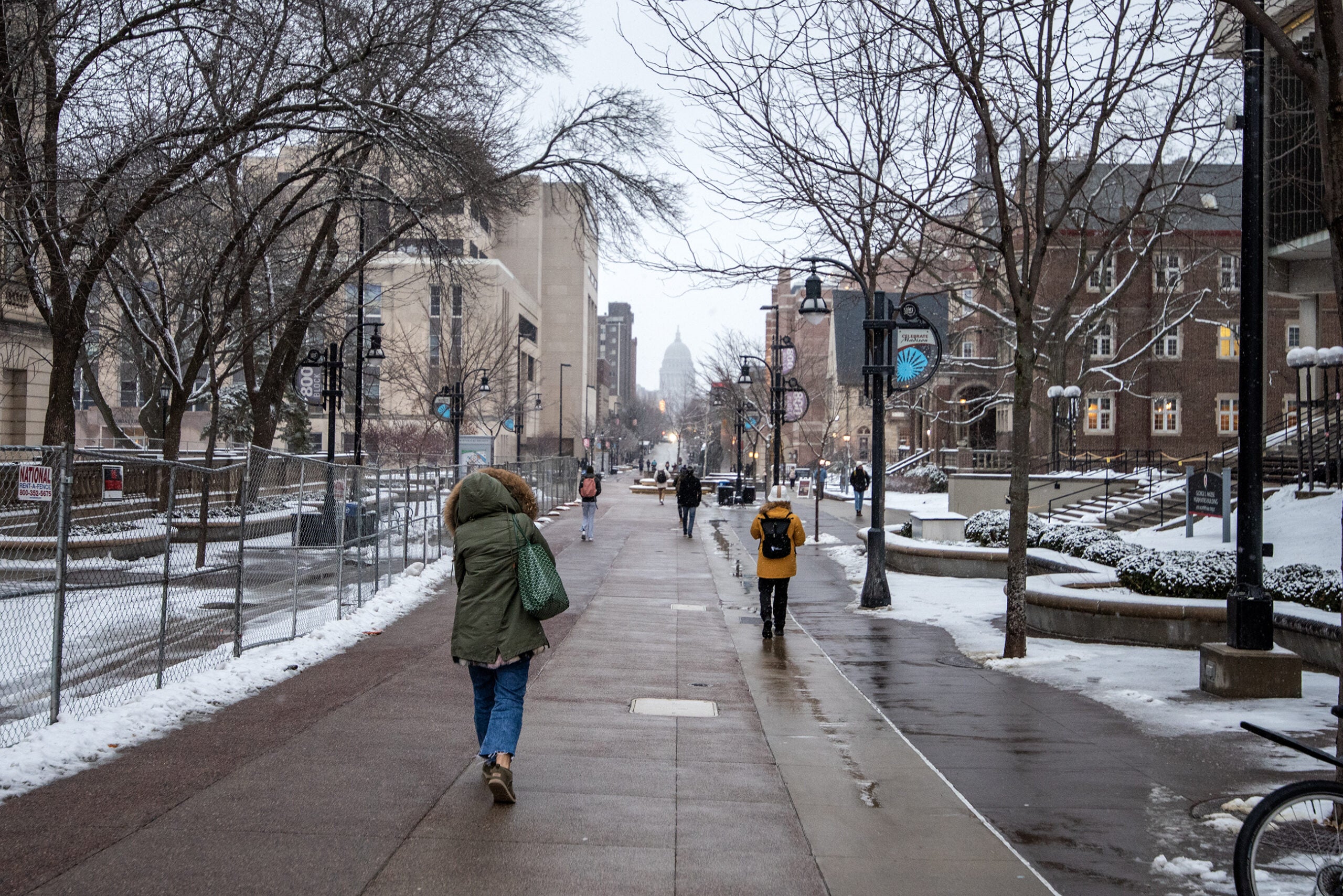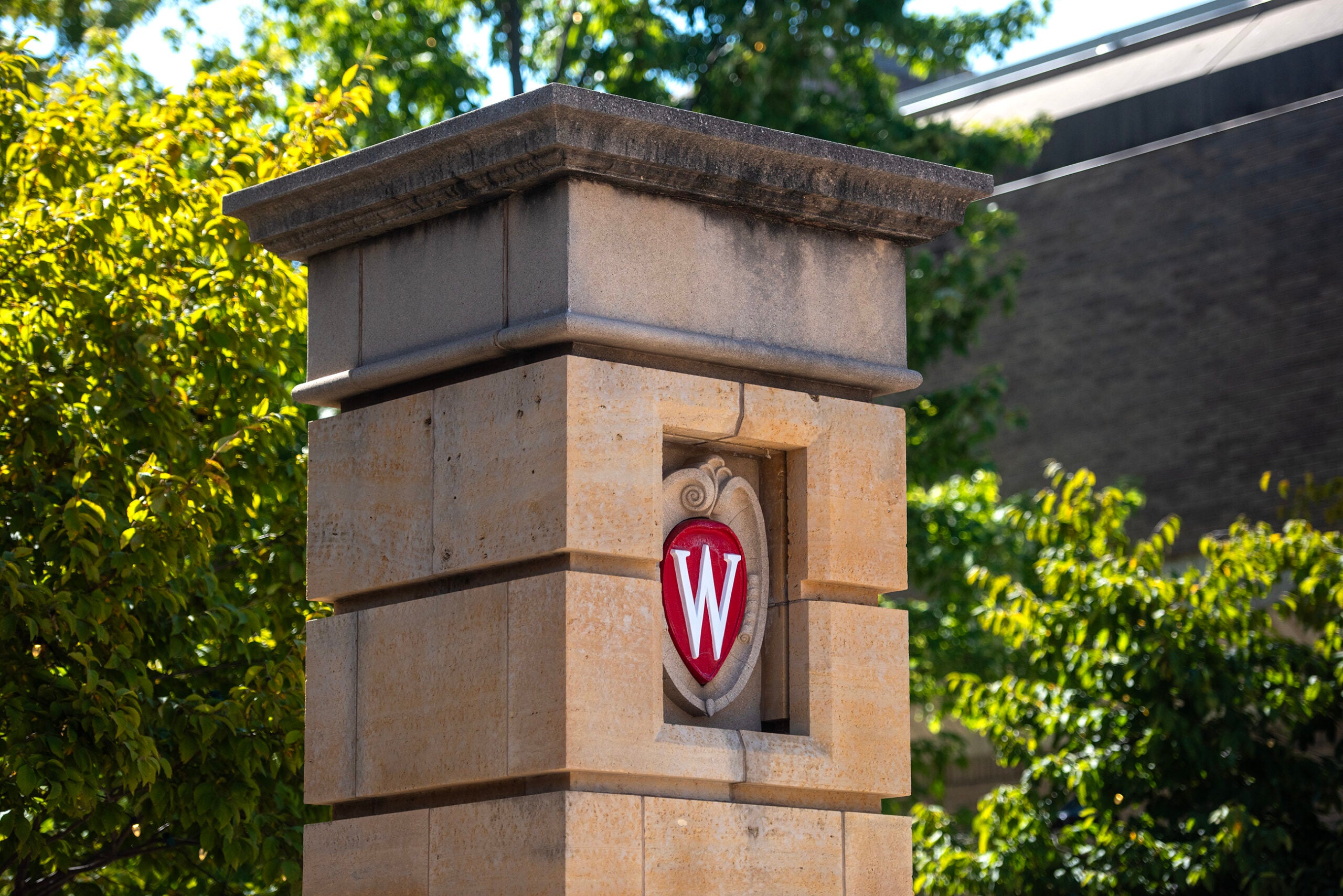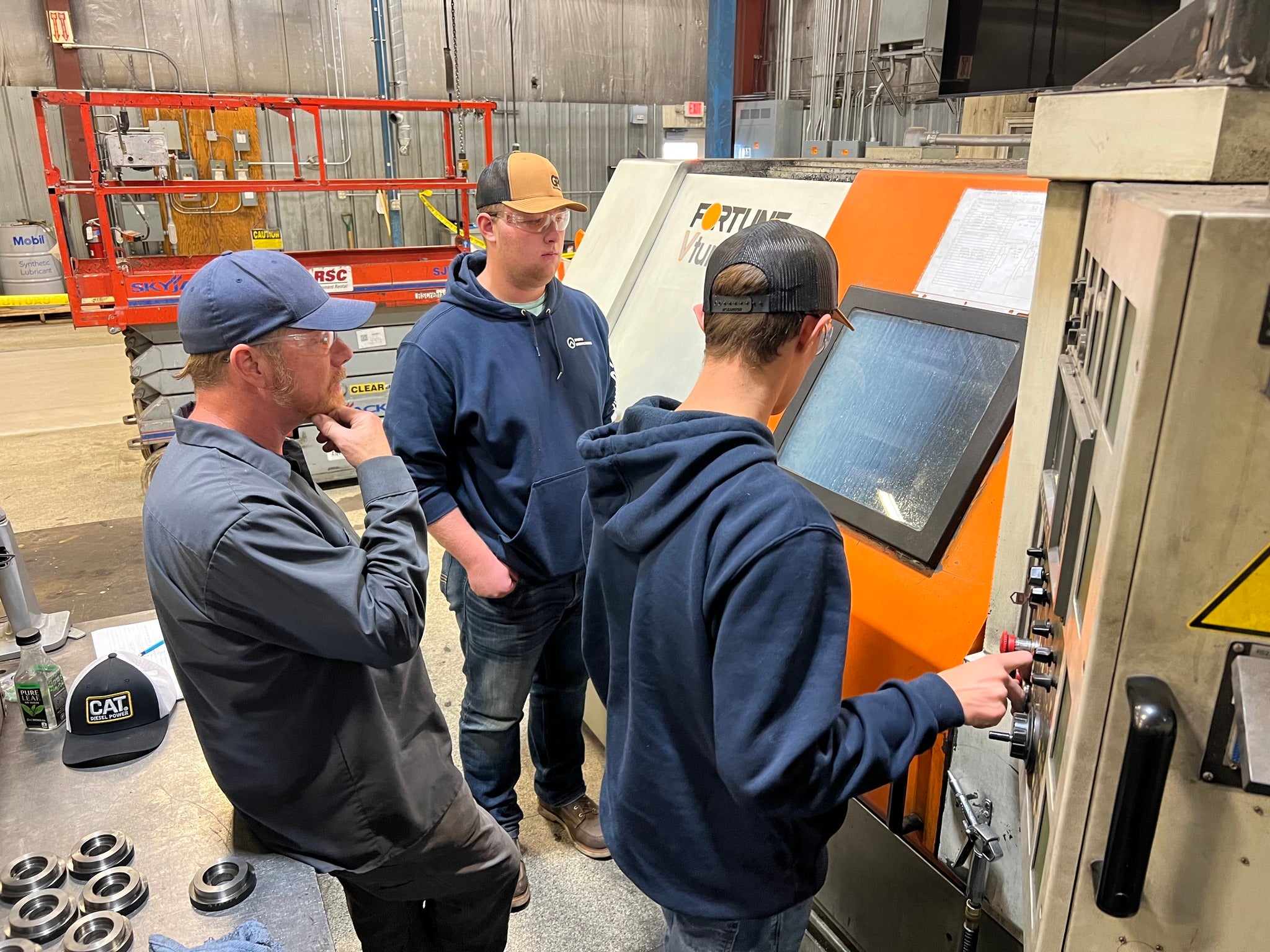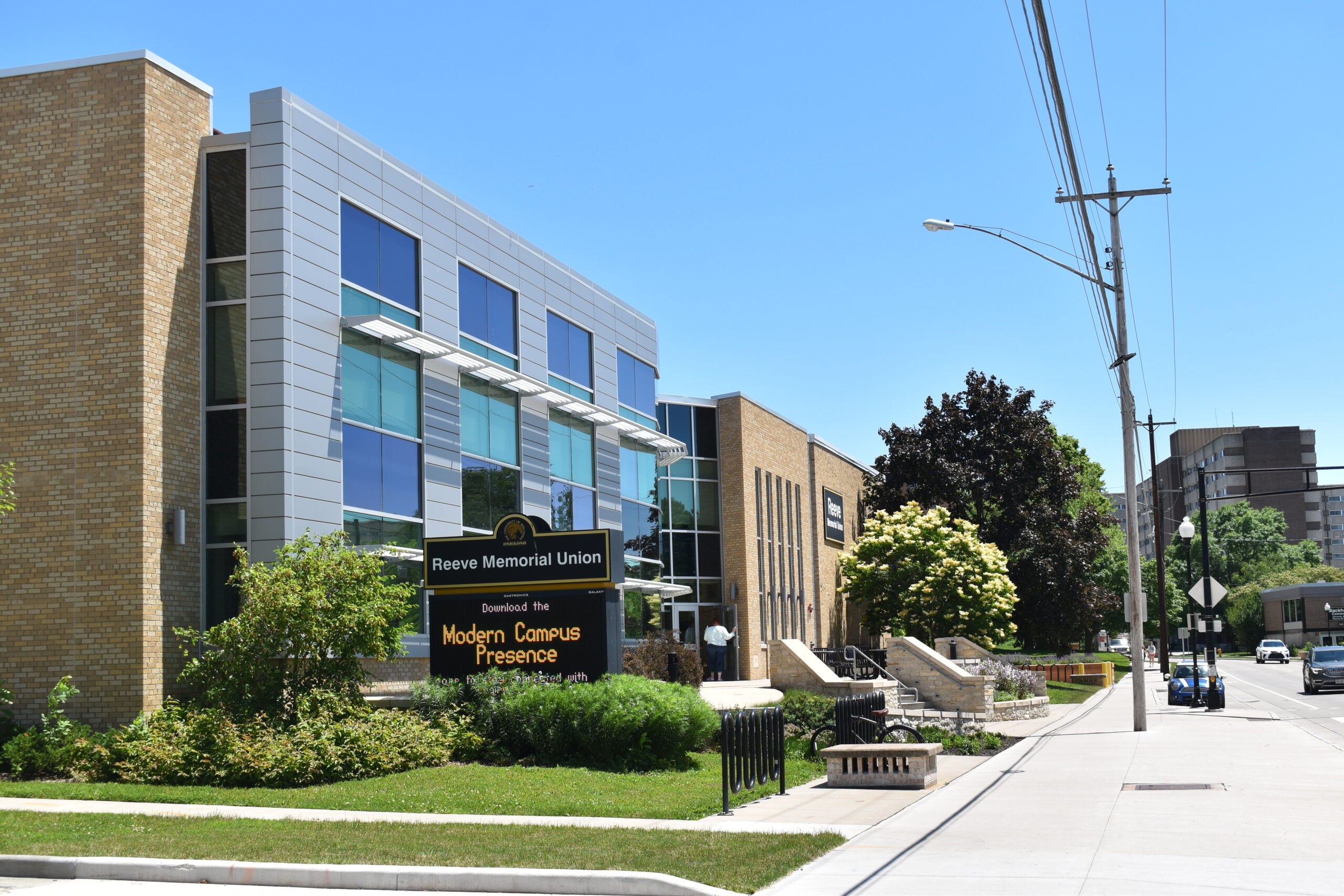Until this week, Imani Lewis, a junior at J.I. Case High School in Racine, hadn’t put a ton of thought into which college she’ll attend.
It’s not that Lewis, 16, isn’t focused. She has a 3.9 grade-point-average and a near perfect score on the pre-ACT test.
Lewis wants to go into biomedicine. She was thinking about attending the University of Wisconsin-Milwaukee, but planned to look at other schools.
News with a little more humanity
WPR’s “Wisconsin Today” newsletter keeps you connected to the state you love without feeling overwhelmed. No paywall. No agenda. No corporate filter.
Then she learned about the law Gov. Tony Evers signed into legislation on Tuesday, allowing high schoolers to gain direct admission into UW-Madison if they are in the top 5 percent of their graduating class.
Now, she said, Madison has jumped to the top of her list.
“This would increase my chances of wanting to apply there,” Lewis said. “I worked really hard in my high school years and this would be an amazing opportunity to be able to go there, because of how good my grades were during high school.”
About 3K students will qualify for admission
Lewis’ reaction is just how Evers and lawmakers intended the new law to work.
Graduation data from the Wisconsin Department of Public Instruction shows there were 59,519 graduates during the 2021-22 school year. About 2,975 graduates would qualify for automatic admission to UW-Madison.
But Wisconsin’s flagship school gets more than 60,000 applications for its freshman class, and is only able to accept about 8,000 students, including both in-state and out-of-state applicants.
UW-Madison spokesperson Kelly Tyrrell said the vast majority of top high school graduates would have already been admitted to the school through the previous admissions process.
“We don’t know yet whether more students will be admitted,” Tyrrell said. “The number will be based on a variety of factors, including if the eligible UW-Madison students end up choosing a different school.”
Tyrrell said many high schools don’t rank students, so now they are in the process of making a change.
Sought after school still out-of-reach
Kristen Monty, a counselor at Case High School, says the new law will give high achieving students a reprieve from worrying about getting into Madison.
“Right now, it feels sort of random for them because UW-Madison uses a holistic approach to admissions, meaning they can look at everything,” Monty said. “We’ve had high-achieving students that have not gotten into Madison and then we’ve had solid students get in over them. And it’s just really hard to explain that.”
Still, at Case, the law will only affect about 20 of the school’s 400 seniors, Monty said. And nearly all the college-bound seniors have dreams of going to UW-Madison, Monty said.
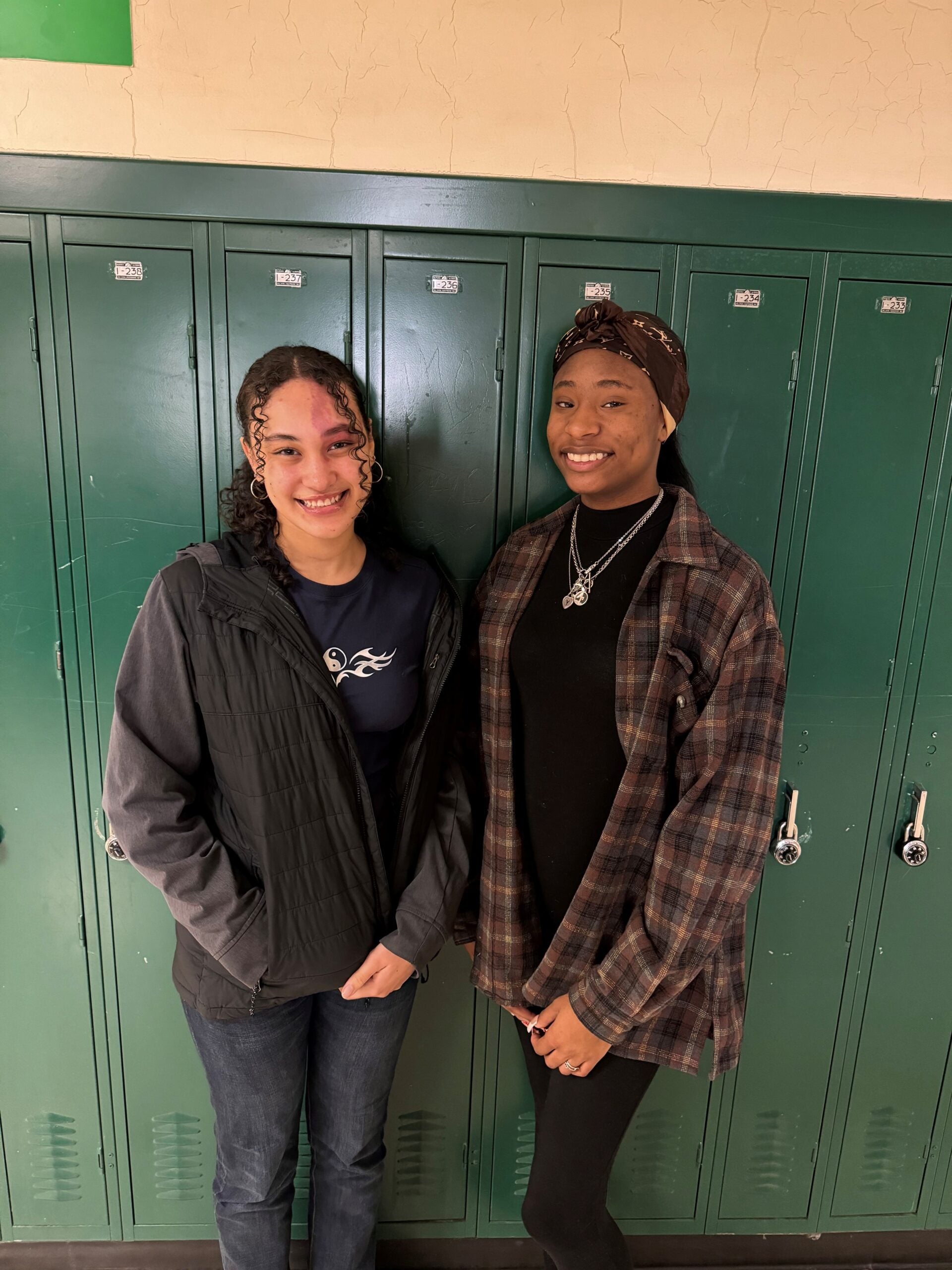
That includes Ya’Niece Giovanni who started out wanting to attend a Big 10 university and has since zeroed in on Wisconsin.
“I toured UW-Madison several times with my parents and know that this is the place that I want to go,” said Giovanni, 17.
Giovanni, who is a senior at Racine Case, is in the top third of her class, but not quite the top 5 percent. She has always gotten As and Bs and scored a 25 on the ACT.
“I applied to UW-Madison as well as UW-Parkside and UW-Oshkosh, because my hope is to go to dental school and I knew that they have good science programs,” Giovanni said.
Giovanni has been accepted to Parkside and Oshkosh. She was deferred for early admission to Madison.
She’ll find out next month if her grades from last semester were enough to get her into the school.
“I felt pretty sad, but then I was just like, at least it wasn’t a no,” Giovanni said. “I’ll probably end up going to Parkside, because when Madison ended up coming to the school to talk to seniors, they told us if we don’t get in, to go to another UW school. As long as we keep a 3.5 GPA, we can transfer in.”
‘I’m not sure what the larger impact of this will be’
Gabriel Velez is an assistant professor of educational policy and leadership at Marquette University.
He says there is so much uncertainty for high schoolers around college right now, both in terms of the narrative and the actual reality of admissions and paying for school.
“I 100 percent see how for the students who all of the sudden are in this 5 percent, this is going to be nice to have this guaranteed thing,” Velez said. “But when you look at some of the data and research, I’m not sure what the larger impact of this will be.”
The “Top 10 Percent Law” is the common name for the Texas state law passed in 1997. It guarantees residents of Texas who graduate in the top 10 percent of their high school class automatic admission to all state-funded universities.
In Wisconsin, the new law signed by Evers this week guarantees the top 10 percent of high school students will be admitted to all Universities of Wisconsin schools except Madison, which will take the top 5 percent.
The University of Texas at Austin, the Texas flagship, currently admits eligible students in the top 6 percent of their high school class.
Velez said research has shown that for the students on the margins — near that 6 percent range — the Texas law has helped them into the university system.
But Velez says there are many other factors to consider when thinking about college admissions.
“I’m excited by the different efforts that are taking place to start shifting narratives a little bit, including this 5 percent, to make students feel like college is more accessible,” Velez said. “But I do think there always needs to be thought about providing them the resources and opportunities on campus to succeed and thrive in their education and beyond.”
Wisconsin Public Radio, © Copyright 2025, Board of Regents of the University of Wisconsin System and Wisconsin Educational Communications Board.

